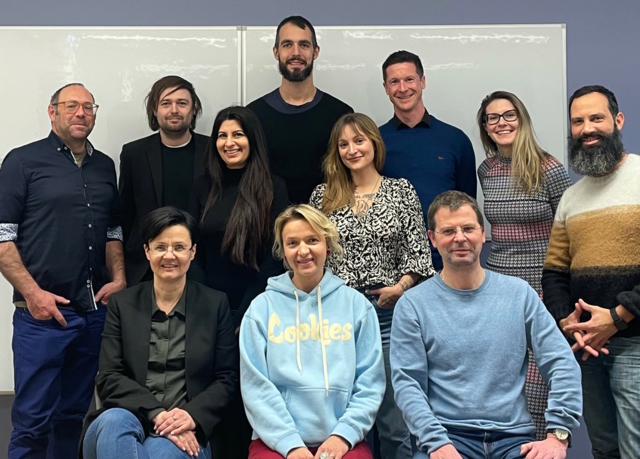- Areas
- Current Projects
- Emil Julius Gumbel Research Department
- Hilde Robinsohn-Guest Fellowship
- Previous Projects
- Euphony: Jews, Muslims and Roma in the 21st Century Metropolises
- Settling with RASSCO: Transfer Paths of the German Aliyah to Palestine-Eretz Israel (1933-1948)
- United in Diversity – An Interdisciplinary Study of Contemporary European Jewry and its Reflection
Euphony: Jews, Muslims and Roma in the 21st Century Metropolises
Society and the PresentReflecting on Polyphonic Ideal and Social Exclusion as Challenges for European Cohesion
Researcher: Dr. Olaf Glöckner, in cooperation with the Center for the Study of the Holocaust and Jewish Literature, Prague (Charles University, main applicant, Dr. Marcela Menachem Zoufala), and the Institute of the Middle and Far East of the Jagiellonian University Krakow (Prof. Joanna Dyduch)
Duration: 2022-2024
Funding: EU program Erasmus Plus (2022-1-CZ01-KA220-HED-000089285)
Current challenges for the European Union include the inclusion of ethno-cultural minorities in socio-cultural modernization processes and the sustained strengthening of social cohesion. Ethno-cultural minorities bring a variety of resources and ideas into the process of European unification, while a variety of intercultural negotiation processes (as well as conflicts) take place in metropolitan cities/regions in particular, the perception and analysis of which is often only just in the beginning.
EUphony examines the self-image, social participation and social exclusion experiences of Jews, Muslims and Roma in European metropolises, especially in Prague, Warsaw and Berlin-Brandenburg, in a comparative analysis. With an intersectional approach, the ideas of these groups (Jews, Muslims, Roma) regarding the future of Europe are also in focus. Integral components of the project are qualitative anthropological field research, (academic) advanced training events for students from the Czech Republic, Poland and Germany and the publication of three articles in academic journals.
The project also includes an awareness campaign on this topic in the social media (Facebook/Twitter/student podcast).
Euphony Summer School 2023 at Charles University in Prague [PDF]
